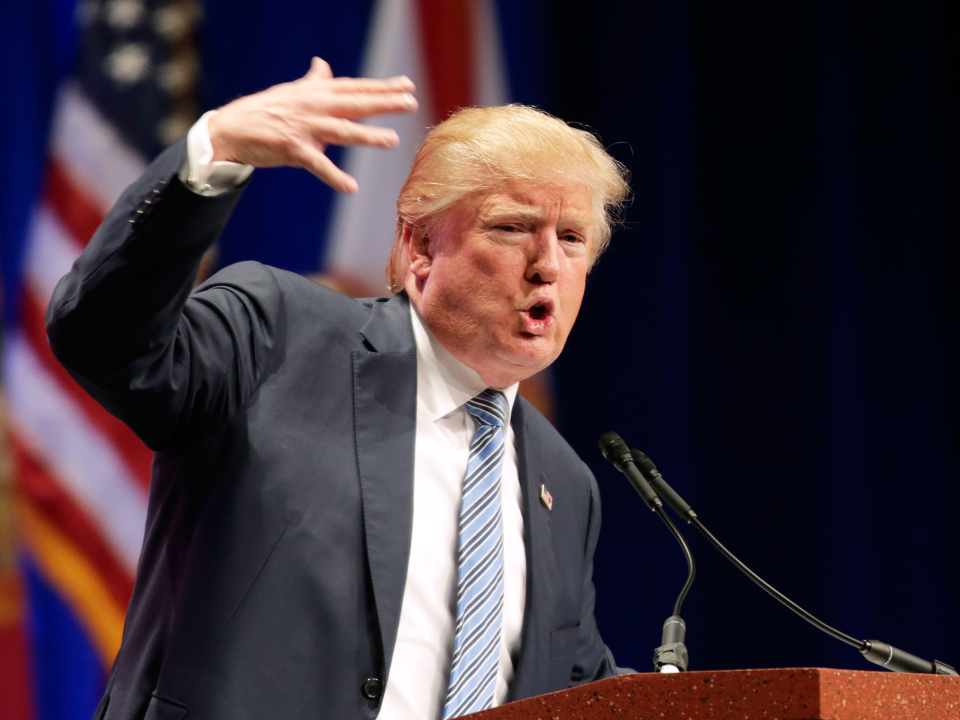What could prevent Donald Trump's recession
Markets have calmed down since Donald Trump won the 2016 presidential election, but the policies he favors still pose many land mines for the economy.
Trump has promised to unravel free-trade deals, roust undocumented workers out of the country and perhaps even send Federal Reserve chair Janet Yellen packing. This is bad news for big companies, small companies, ordinary investors and perhaps even the very workers Trump says he aims to help. When Moody’s Analytics analyzed Trump’s economic plan over the summer, they found that if enacted in full, growth would fall from around 2% per year now to around 0.6%, while overall employment would decline slightly. “The economy suffers a lengthy recession and is smaller at the end of his four-year term than when he took office,” the forecasting firm concluded.
Trump pointed out that Moody’s economist Mark Zandi had been a Hillary Clinton donor, and called the study biased. But other nonpartisan analyses of the Trump plan found basically the same thing. Oxford Economics predicted Trump’s plan would cost the economy 4 million jobs and slash $1 trillion in economic output. Citibank said a Trump victory would induce a global recession. The only analyses defending Trump’s plan were produced by Trump’s own staff.
The wipeout in markets validates all of those concerns. The question is what happens next.
If Trump walks back some of his most provocative ideas, markets might find a soupcon of reassurance. But if he powers forward with his agenda—with a more or less friendly Congress enabling him—his toughest critics might be proved right.

Three elements of Trump’s plan unnerve markets and business leaders the most: his stance on trade, his vow to crack down on both legal and illegal immigration, and his animosity toward the Federal Reserve. One by one:
If Trump really does renegotiate NAFTA—and withdraw from the treaty altogether if he doesn’t get what he wants—it will cause turmoil for many American businesses, even if the ultimate outcome years from now would somehow benefit American workers. Automakers and other manufacturers that have committed billions to Mexican production would endure big hits to profitability as they retrenched and tried to figure out the new rules. Trump has also promised to impose tariffs on many imports from China, which would basically push up prices paid by consumers–in other words, stoke inflation. If he really means it, he should get ready for the blowback that comes when that hits the most vulnerable consumers first.
On immigration, Trump is operating on the assumption that fewer working immigrants will mean more work for native-born Americans. But that’s a dicey assumption many economists disagree with, since it’s not obvious many Americans even want to do the tough work in landscaping, construction or agriculture that immigrants often do. And shrinking the labor force, whether legal or illegal, would ordinarily depress growth.
Finally, many business leaders consider the Federal Reserve the only group of grown-ups in Washington, given that Congress has done essentially nothing lately to help the economy. If Trump pressured Yellen out of her job somehow, it would indisuptably politicize the Fed, something Trump has accused President Obama of doing, despite any evidence. The Fed is arguably the most important financial institution in the world, and interference in its operations by a Trump administration would undermine confidence in markets everywhere.
So the real question for markets is whether Trump means everything he says. If he does, the odds of a recession during the next four years are probably well above 50%. The people hurt most would be the most economically vulnerable, many of them Trump supporters. The elites Trump and his followers rail against would see their investing portfolios decline, but they’d hardly end up hosed. If Trump quickly disavows his most radical ideas, on the other hand, markets might creep back and multinational CEOs might exhale. Meanwhile, try not to look at your retirement accounts for awhile.
Rick Newman is the author of four books, including Rebounders: How Winners Pivot from Setback to Success. Follow him on Twitter: @rickjnewman.

 Yahoo Finance
Yahoo Finance 
